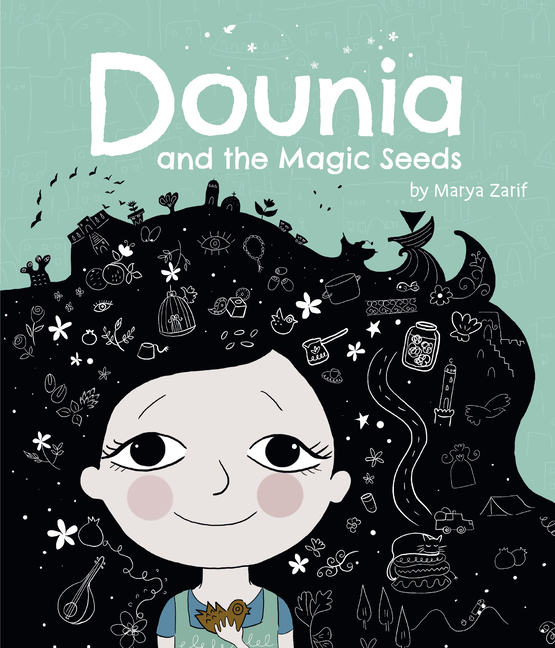Book Description
for Dounia and the Magic Seeds by Marya Zarif
From the Publisher
"Dounia is the story of a little girl who loves her home city of Aleppo, Syria, and its many smells, sights, and traditions. But when war breaks out, Dounia and her grandparents must flee Aleppo to find safety. Before they go, their neighbour reads their future in a cup of coffee - she sees a long difficult journey ahead of the family and a blue house awaiting them at the end. Taking only a bird carved from Aleppo soap and four little barake seeds in her pocket, Dounia faces dangerous waters, a camp surrounded by barbed wire, and unfriendly soldiers, and she wonders where she and her family belong in the world. Remembering the ancient knowledge that barake seeds ward off evil, she pulls one from her pocket to use for each of the threats they face. Magically, the seeds from their faraway home help them along their way, until they finally find the blue house at the end of their journey. In her new home, Dounia plants her final seed in a pot so it can grow and offer more seeds, while also keeping a piece of Aleppo with her. The baraké seeds represent the Syrian culture -- although Dounia is fleeing her country, she carries with her the strength of her people. It is by tapping into her roots, represented by the seeds, that she finds her own strength and resilience. The magical moments brought about by the baraké seeds can be interpreted as Dounia's imagination - it's a way of seeing the war and the migration from a six-year-old's perspective. Dounia does not understand everything that is going on, but she is not a powerless victim. By using the seeds, she feels she is taking an active part in her own destiny. In the end, whether it is magic or Dounia's imagination at play, it's a story about obstacles faced by migrants and about the courage they have in facing these obstacles. As Marya puts it in her article for TBI Magazine, it reverses the common narrative in North American media that "Syria" is synonymous with devastation and destruction, and that Syrian refugees can only be victims of their circumstance, rather than brave, vibrant heroes who can take charge of their own stories" --
Publisher description retrieved from Google Books.


